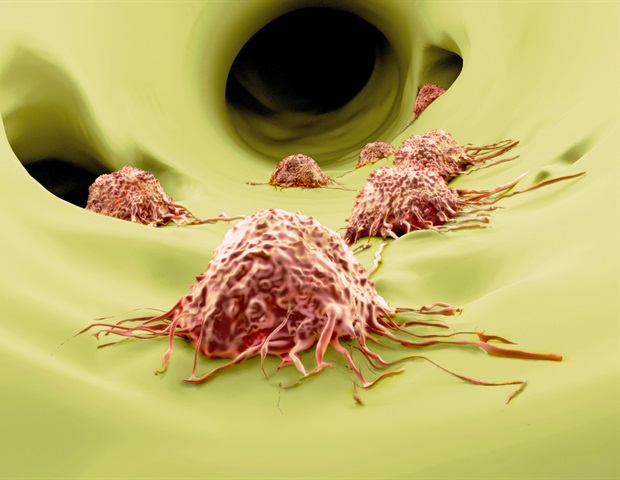
The American Cancer Society (ACS) and Melanoma Research Alliance (MRA) have selected two new promising projects in a second round of funding under a partnership between ACS & MRA. The first grants funded through the partnership, in 2018, focused on advancing research to reduce side effects resulting from cancer treatments with immune-checkpoint inhibitors. This year's grants will support two interdisciplinary teams to better understand and manage metastasis of melanoma and other types of cancer.
The new grants, each funded at $1 million total, will go to teams led by Michael A. Davies, M.D., Ph.D., at University of Texas M.D. Anderson Cancer Center and Eva Hernando, Ph.D., at New York University School of Medicine.
Dr. Davies will lead a team that brings together investigators from various specialties, and from two of the largest melanoma centers in the world (MD Anderson and Melanoma Institute Australia). The team will explore whether molecular and immune features of individual melanomas can predict which patients will develop central nervous system metastases.
They will also test an experimental new treatment for brain metastases, IACS-010759, which is currently in clinical trials. The team will determine whether the drug can improve survival in combination with FDA-approved targeted therapies. The team will also test the drug in patients with other cancers (i.e. lung cancer, breast cancer), to see if it can improve treatments used for brain metastases from those diseases.
Dr. Hernando and her team will investigate the role of amyloid beta in brain metastasis. Dr. Hernando's lab has analyzed the protein content of melanoma that had spread to the brain, and found, surprisingly, elevated rates of Amyloid Processing Protein (AAP), the same protein that plays a central role in the development of Alzheimer's disease.
The team will investigate how APP, which generates amyloid beta, influences melanoma growth within the brain microenvironment; determine the therapeutic potential of targeting APP using antibodies and compounds that have already being tested clinically in Alzheimer's patients; and assess if APP is required for brain metastasis of other tumors, such as lung and breast cancers.
The grants are funded under a joint agreement between Melanoma Research Alliance and the American Cancer Society that began in 2018. Each organization will contribute $1 million to support the two teams over three years. By combining funding and networks, the groups can help deliver breakthroughs faster. The new multiyear grants go into effect January 1, 2020.
This is a serious area of unmet medical need. In fact, almost 40% of patients with metastatic melanoma already have detectible brains metastases at diagnosis. Further research is desperately needed to better understand the unique biological features that facilitate the spread of melanoma to the brain and support the growth of metastatic cells once there. Moreover, identifying markers that predict metastatic spread as well as potential new treatments for brain metastases are essential for improving outcomes for patients.
Melanoma Research Alliance President & CEO Michael Kaplan
For melanoma patients, the spread of metastases to the lungs, liver, and brain is a serious and often deadly result. Being able to prevent metastasis or treat metastatic tumors in patients with melanoma would be a crucial development and could save many lives from this aggressive form of cancer. These two teams of investigators will take advantage of recent rapid growth in our knowledge about cancer spread to explore new treatment options for late stage melanoma.
William Phelps, Ph.D., senior vice president of Extramural Research for the American Cancer Society
American Cancer Society






No comments
Post a Comment